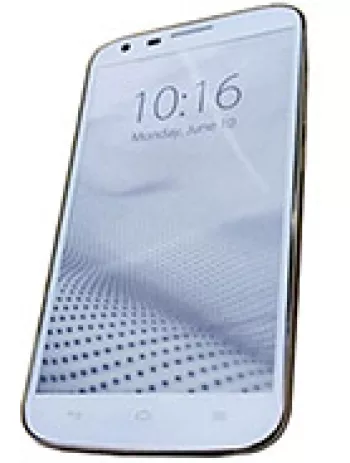
Overview of Huawei G6620
The Huawei G6620 is a feature phone introduced to the market in July 2011. It is a straightforward, practical mobile device designed for basic communication needs. This device is suitable for users who prefer traditional mobile functionalities without the complexities of modern smartphones. With its classic QWERTY keyboard and robust build, Huawei targeted a segment that relied on messaging and simple telephony.
Design and Build
The Huawei G6620 boasts a compact design with dimensions of 108 x 59 x 12 mm. Its lightweight nature, although unspecified in terms of actual weight, suggests a comfortable handling experience. One of its notable design features is the QWERTY keyboard, which appeals to users who frequently send texts and emails. The phone is available in three colors: Gray, Blue, and Orange, offering some personalization in its appearance. The dual SIM capability (Mini-SIM) is a considerable advantage for users managing multiple contacts or traveling frequently between countries.
Display
The device is equipped with a 2.4-inch TFT display, featuring 256K colors. Although the screen size may seem modest, it ensures readability and practical navigation through the phone's menu. The resolution of 320 x 240 pixels gives a density of approximately 167 ppi, providing clear text and graphics suitable for everyday tasks without the strain of high-resolution demands.
Camera
The Huawei G6620 features a basic 1.3 MP main camera. This specification aligns with the device's purpose as a feature phone, catering to users requiring occasional photography rather than advanced imaging. It lacks advanced photographic features but delivers adequate photos for social sharing and quick snapshots. As a notable absence, the device lacks a selfie camera, a common feature in contemporary phones but not unusual for devices of its class during the release period.
Performance and Storage
While specific details about the processor and RAM are lacking, as a feature phone, the performance of Huawei G6620 revolves around simplicity and efficiency for basic operations. It supports a microSDHC card, which is advantageous for users needing extra storage for photos and music. The card slot contributes to the practicality of maintaining user data outside the internal memory capacity, which was often limited in such devices.
Network and Connectivity
The Huawei G6620 operates on GSM technology, suitable for 2G networks across different frequency bands (850/900/1800/1900) on SIM 1. While it only supports GPRS and lacks EDGE, its network capabilities suffice for basic web browsing and messaging services. Connectivity is extended through Bluetooth 2.0 with A2DP support, enabling wireless pairing with other devices. Additionally, the phone includes an FM radio and microUSB 2.0 port, rounding out its basic connectivity options.
Battery Life
The device is powered by a removable 800 mAh Li-Ion battery. While this might seem minimal by modern standards, it supports the low-power demands of a feature phone adequately, permitting days of use under regular conditions. Removable batteries were a standard in feature phones, allowing users the flexibility of carrying spares or replacing the battery if needed over time.
Additional Features
The Huawei G6620 supports SMS, MMS, Email, and Instant Messaging (IM), adapting to varied communication preferences. Entertainment is delivered through built-in games and Java support, allowing for the installation of Java-based applications. The presence of a 3.5mm audio jack supports personal music experiences, a feature appreciated by audiophiles who prefer using existing audio gear.
Conclusion
The Huawei G6620 reflects the values of a bygone era where mobile phones' focus was towards durable build quality, effective communication, and basic multimedia capabilities. Though discontinued, it stands as a testament to an era that appreciated structured, purposeful design in mobile technology. For those nostalgic for simpler times, or in need of a reliable secondary phone, the Huawei G6620 remains an enduring choice.
Key Features of Huawei G6620
- QWERTY Keyboard for easy typing
- Dual SIM functionality (Mini-SIM)
- Expandable storage with microSDHC card slot
- 2.4-inch TFT display with 256K colors
- 1.3 MP main camera
- FM radio for entertainment
- 3.5mm audio jack for standard headphones
- Bluetooth 2.0 with A2DP support
- Removable Li-Ion 800 mAh battery
- Available in multiple colors: Gray, Blue, Orange
- Affordable price (around 70 EUR)
Disadvantages of Huawei G6620
- No EDGE support, limiting data speed capabilities.
- Discontinued status, making it challenging to find or repair.
- Lack of weight information may affect portability considerations.
- Small screen size with a low screen-to-body ratio (~28%).
- Low-resolution display (320 x 240 pixels) and low pixel density (~167 ppi).
- Basic camera with only 1.3 MP, without advanced features or video capability.
- No front-facing (selfie) camera available.
- Absence of WLAN for internet connectivity.
- Lacks GPS for positioning services.
- No built-in sensors for additional functionality.
- Small battery capacity (800 mAh) might require frequent charging.

View Also
More Phones
All Rights Reserved +14268 Phones © Mobilawy 2025

























